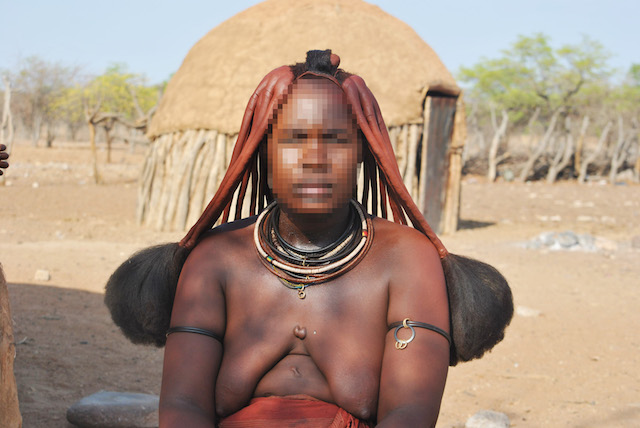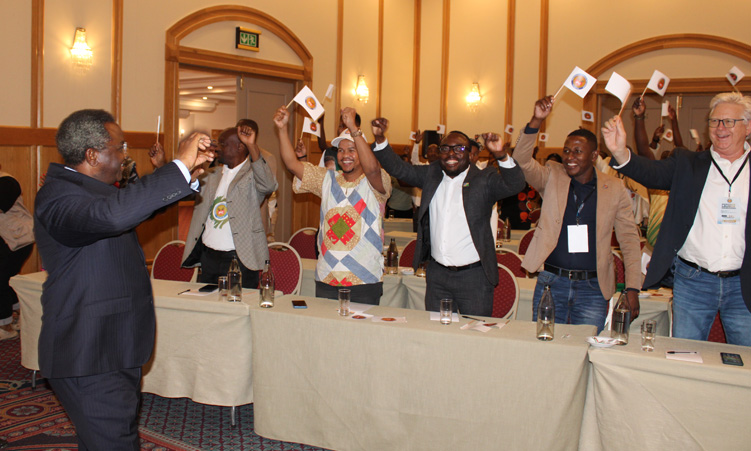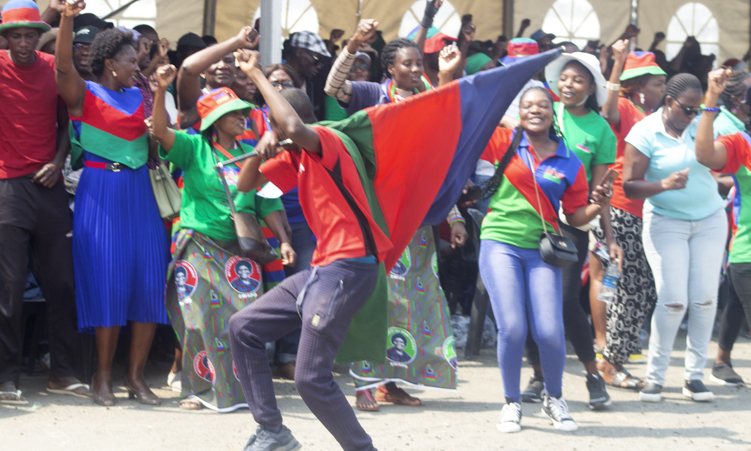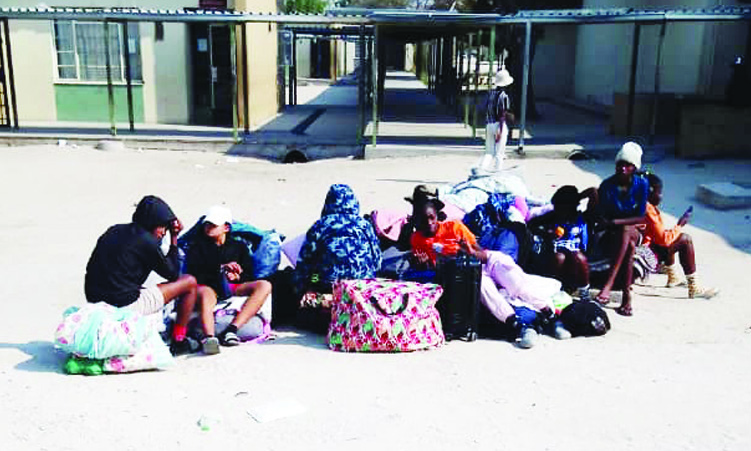LITTLE *Kengee Tjipo hardly knew how to walk and talk properly when her parents gave her hand in marriage to a 25-year-old man at the age of two.
Kengee, who is now four years old, is still too young to understand that she is already married and her family will be sending her off to her husband’s home once she turns six.
It is customary for Ovahimba families to arrange their daughters’ marriage at a young age and this family from Omuangete village in Kaokoland is no different.
According to her uncle, Kengee’s traditional ‘wedding ceremony’ took place at the village in 2018 and involved the slaughtering of a sheep, gifts to the bride’s family, while guests ate and drank to celebrate the union.
When visited the family homestead recently, little Kengee was playing with other children in the dust, oblivious to what was happening in the adult world.
Kengee’s mother, *Tueripura Matundu, confirmed the marriage, saying the groom’s mother had asked for Kengee’s hand in marriage while she was still breast-feeding her.
“She [Kengee] was still being breastfed then and we accepted [the proposal],” she said, adding that Kengee’s mother-in-law is also her aunt, making Kengee and her husband cousins.
Even though Kengee is going to live with her husband from the age of six, Matundu strongly said she will not sleep in the same hut with him until she is old enough.
“Sometimes people ask my daughter [Kengee] about her husband and she starts to cry as if she understands,” recalls Tjiposa.
“Kengee will not be forced to sleep with her husband, if she does not want to,” Matundu says.
Matundu says she has no say on her daughter’s education, since she married her off and it is entirely up to her husband to decide what he wants for her.
“If a child does not want the marriage, she should not be forced because she might end up committing suicide,” Tjiposa advised.
Similarly, if the man is no longer interested in his young wife, he can leave her even after they have lived together for some time.
What the parents care about is giving the marriage a chance, and if one is not happy about it, they can leave their partner, Matundu said.
There are many things that make the Ovahimba different from other Namibian tribes – their red ochre, known as ‘otjize’ and the many ancient practices they retain that have been abandoned in some countries – like arranged child marriages.
The Ovahimba are a unique, vibrant, industrious and nomadic tribe that religiously follow the traditions of their forefathers.
They are mainly found in north-western Kunene.
Loyalty to tradition is ingrained in their lives as they still practise child marriages.
When visited the small village of Omuangete approximately 75 kilometres from Opuwo, headman Tjihenu Tjiposa explained the reason for child marriages.
“We marry the young ones with the hope that they would give us children, who will look after the livestock,” he said.
Tjiposa explained that choosing the bride is the prerogative of the groom’s parents who then initiate the negotiations.
It is up to the bride’s parents to accept or reject the proposal.
All along the groom will not know about the arrangements, only to be told after the negotiations succeed.
His parents tell him they have found him a bride and he cannot refuse or reject the arrangement. The betrothed bride can be anything between one and 14 years, or older.
After the bride’s parents accept the proposal, the bride continues staying in her father’s household while growing up, Tjiposa explained.
When the time to take the child bride away comes, a traditional wedding is performed at her father’s house where a send-off feast is held and another one to welcome her at the groom’s house.
Tjiposa said a girl can be married off to older men with no specific age limit.
As the bride continues staying with her parents, the groom must build a home so that when she is old enough to go to her husband’s home, usually around the age of 14, they would already have a home to raise their children.
Stay informed with The Namibian – your source for credible journalism. Get in-depth reporting and opinions for
only N$85 a month. Invest in journalism, invest in democracy –
Subscribe Now!






